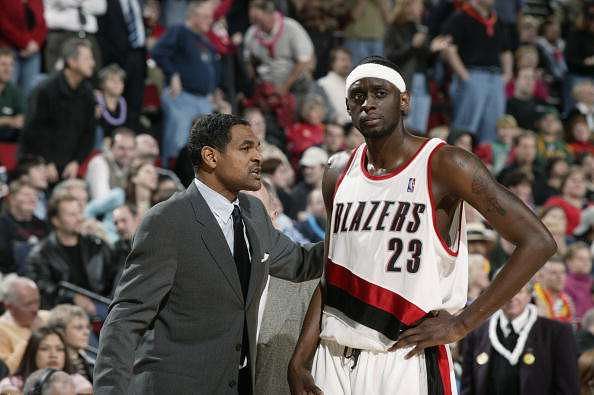
Former NBA star Darius Miles files for bankruptcy after spending career earnings of $86 million
Darius Miles was the NBA No. 3 draft pick in 2000 and is now reported to have spent all his career earnings of about $86 million, which has seen the former NBA star on the verge of being bankrupt.
Also Read: NBA 2K17 ratings: Players with the highest overall ratings
The news comes in as the 34-year-old has filed for bankruptcy after just eight years of retirement from the sport where he ended his career with total earnings of $85.6 million. The American rose to fame at a young age after he had signed a $9 million contract after he got out of school. However, Miles has now seen himself writing off his $US 1.57 million debt to an Illinois court which has brought his assets down to only $460,385.
The documents were obtained by the Belleville News-Democrat, which showed that Miles, an NBA star at one point in his career, does not have much in the way of a significant bank balance.
The player had first been selected by the Los Angeles Clippers in the first round of the NBA Draft in the year 2000. The 2001 NBA All-Rookie First Team member had also signed huge endorsement deals with sports apparel company Jordan and has also been featured by sports magazine, Sports Illustrated.
The 34-year old was then traded to the Cleveland Cavaliers, where he did not spend much time. He then moved to Portland where he signed a large free-agency contract – this was at a time when Miles’ career was on the rise.
The American was so famous at one point that he even tried his hand in acting. The basketballer featured in a 2002 comedy movie, Van Wilder, alongside Ryan Reynolds. His next movie was that with Scarlett Johansson in 2004 which was titled ‘The Perfect Score’.
However, a knee surgery two years later caused a lot of harm to his playing style, leading his team, the Trail Blazers, trying to force him into retirement. It meant that Miles’ team, Portland, did eventually manage to leave out the player from the roster.
This meant the Blazers had to payout Miles’ entire contract, which included a $9 million salary for the 2009-10 season.
The player tried to resurrect his career at the Memphis Grizzlies as he featured in 34 games during the 2008/09 season but his career came to a sad end soon after when he failed to win a roster spot in Charlotte in the following season. This was a very tough time in his life as several legal problems and bad investments led to his decline.
Miles’ bankruptcy included claims of child support depts of $20,000, losing $100,000 in a real estate deal in California, which was surrounded by a series of lawsuits. The former player has also told the court that he has tax debts with the Internal Revenue Service of $282,041.
There were also reports which suggested that the player had a habit of buying expensive diamond jewellery for himself during his playing days, however, his claims in the court documents indicate that the debts are due to business losses and not personal expenditures.
Also Read: 5 NBA players who need a comeback
This is now a very common feature of an NBA player’s career timeline. Former Orlando star, Adonal Foyle, who is now the Vice President of the NBA Players' Union, said that up to 60% of NBA players now file for bankruptcy in their first five years out of the game.
Foyle had told The New York Post in a recent interview where he said that all players now have a fear of going broke after retirement. Foyle said, “Lots of players are having financial trouble, but they won't talk about it. There's a lot of fear. Guys are vilified. They're waiting to see who goes into the lottery of going broke. Lots of guys are having trouble. But they won't talk about it. They think, 'I don't want to be one of those guys,' and they're hiding it.”
The former Orlando player said that the best way to avoid squandering their money is to educate themselves properly to both learn how to manage their money and also learn a skill of sets which can help them earn money even into their retirement. “It's difficult for players, especially those who didn't go to college, to be prepared to understand the business side of what they do,” Foyle said.
Foyle added, “They need to understand that what they do isn't just on the basketball court, they are the CEO. They need to find the right people to watch over their money and then watch those people. It's a lot of work. College gives you a chance to figure out what you are interested in. My parents asked me when I was still playing what I wanted to do after this was over, and it got me thinking about it. Players need to ask themselves, 'What's the next step?'”
